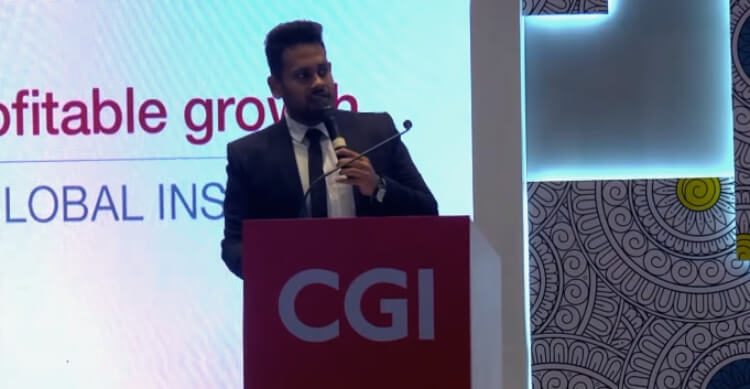Organizing a business conference is a complex task that involves meticulous planning and coordination. From selecting the perfect venue to managing attendee registrations, each step plays a crucial role in ensuring a successful event.
To be successful, how to organize a successful business conference requires attention to detail and a clear strategy. By focusing on key areas such as agenda setting, logistics, and promotion, you can create a memorable and impactful conference experience.
This guide will walk you through essential steps and best practices to make your conference a standout success. Let’s dive into the strategies that will help you achieve your event goals.
What is a Successful Business Conference?
A successful business conference is one that meets its goals and leaves a lasting impact on its attendees. It’s not just about bringing people together; it’s about creating an environment where valuable connections are made, insights are shared, and opportunities are seized.

Key elements define a successful business conference. Firstly, the agenda must be well-curated, featuring relevant and engaging topics that resonate with the audience. To organize a successful business conference, it’s essential to include high-caliber speakers who bring expertise and fresh perspectives. Their sessions should be interactive and thought-provoking, encouraging meaningful dialogue and participation.
Additionally, the logistics play a crucial role. From the venue and accommodations to technology and catering, every detail should be handled efficiently to ensure a seamless experience. Effective marketing and promotion also contribute significantly, drawing the right audience and setting clear expectations.
Networking opportunities are another hallmark of a successful conference. Providing spaces and activities that foster connections between attendees can lead to fruitful collaborations and partnerships. Ensuring that attendees leave with new knowledge and valuable contacts is a sign of success.
In contrast, a standard business conference might fulfill its basic purpose of gathering professionals but may lack the strategic elements that make it memorable and impactful. A successful business conference goes beyond mere attendance—it creates an environment where attendees are actively engaged, feel valued, and gain significant benefits from their participation.
In essence, while a business conference focuses on hosting an event, a successful business conference excels in delivering a meaningful and enriching experience for all involved.
How To Organize A Successful Business Conference?
Organizing a successful business conference is a multifaceted endeavor that requires extensive planning, strategic execution, and a keen understanding of your audience’s needs. To ensure your conference stands out and delivers maximum value, it’s crucial to know the essential steps. Knowing how to organize a successful business conference involves coordinating logistics, securing the right venue, and tailoring content to engage your attendees effectively.

Step 1: Define Objectives and Goals
Before diving into the logistics, clearly outline the objectives and goals of your conference. Are you aiming to educate, network, or showcase new products? Your goals will guide every decision, from the agenda to the speakers you choose. This clarity helps ensure that all aspects of the conference align with your desired outcomes.
Step 2: Select the Right Venue
Choosing a suitable venue is crucial for the success of your conference. Consider factors such as location, capacity, accessibility, and facilities. The venue should be conveniently located for your target audience and equipped with necessary amenities like audiovisual equipment, Wi-Fi, and breakout rooms. Selecting from the best locations for business conferences can also enhance your event’s appeal and accessibility.
Step 3: Plan the Agenda
A well-structured agenda is the backbone of any successful conference. Ensure it includes a mix of keynote speeches, panel discussions, workshops, and networking sessions. Engage speakers and presenters who are industry experts and can provide valuable insights. Balance the schedule to allow ample time for networking and interaction among attendees.
Step 4: Budget Wisely
A comprehensive budget plan helps avoid unexpected expenses and ensures that you allocate funds effectively. Include costs for venue rental, catering, marketing, speaker fees, technology, and any additional services. Tracking expenses and sticking to your budget is key to maintaining financial control.
Step 5: Market and Promote
Effective marketing and promotion are essential to attracting attendees. Utilize various channels such as social media, email campaigns, and industry publications to reach your target audience. Craft compelling messages that highlight the benefits of attending your conference. Early registration discounts and special offers can also encourage sign-ups.
Step 6: Handle Logistics Efficiently
Attention to detail in logistics can make or break your conference. Ensure smooth operations by coordinating transportation, accommodations, and on-site registration. Create a detailed plan for managing attendee flow, including check-in processes and signage to guide participants. Having a dedicated team to oversee these logistics will help ensure everything runs smoothly.
Step 7: Focus on Attendee Experience
The overall experience of your attendees is crucial. Provide clear information about the schedule, venue, and any special requirements. Offer amenities such as comfortable seating, refreshments, and interactive elements to keep participants engaged. Post-event surveys can provide valuable feedback to help improve future conferences.
Step 8: Utilize Technology
Leverage technology to enhance the conference experience. Use event management software for registration and scheduling. Live streaming and recording sessions can make the conference accessible to a wider audience. Interactive apps can facilitate networking and provide real-time updates.
Step 9: Prepare for Contingencies
Even with the best planning, unexpected issues can arise. Have contingency plans in place for potential problems, such as technical difficulties or speaker cancellations. Ensure that your team is prepared to handle emergencies and maintain a flexible attitude to adapt as needed.
Step 10: Evaluate and Reflect
After the conference, conduct a thorough evaluation to assess its success. Review feedback from attendees, analyze financial outcomes, and reflect on what went well and what could be improved. This analysis is invaluable for refining your approach and making future conferences even more successful.
Organizing a successful business conference involves a combination of strategic planning, attention to detail, and a focus on delivering value to attendees. By defining clear objectives, choosing the right venue, planning a compelling agenda, and managing logistics effectively, you can create an event that leaves a lasting impression and achieves your goals.
How To Budget For A Business Conference: Understanding Conference Costs?
When budgeting for a business conference, you should understand the costs involved clearly. Here are some common business conference costs to consider.
- Venue Rental Fees: This is the largest expense for organizing a conference. The cost of renting a venue will depend on the location, size, and amenities provided. Depending on the tax regulations in the relevant country, these costs may be tax-deductible.
- Food And Beverage Costs: Depending on the conference, food and beverage costs are significant. Be sure to factor in the number of attendees and the types of meals and refreshments you plan to provide.
- Speaker Fees: If you plan to invite speakers to the conference, you’ll need to factor in their fees and any travel and accommodation costs.
- Marketing And Advertising: To ensure a successful turnout, you must allocate funds for marketing and advertising efforts, such as social media campaigns, email marketing, and print materials.
- Audio/Visual Equipment: Depending on the conference, you need to rent audio/visual equipment, such as microphones, speakers, projectors, and screens.
- Staffing And Support: You’ll need to factor in the cost of staff, including event planners, registration staff, and on-site support.
Marketing Conferences: How To Promote And Market Your Event?
When promoting and marketing a marketing conference, there are a few key strategies that can help ensure its success:
- Develop A Comprehensive Marketing Plan: Create a detailed plan that outlines the specific tactics you’ll use to promote your conferences, such as email marketing, social media promotion, content marketing, and advertising.
- Leverage Social Media: Social media platforms like LinkedIn, Twitter, and Facebook are great tools for promoting your conference and engaging with potential attendees. Use these platforms to share updates about your conference, post photos and videos, and run targeted advertising campaigns.
- Create Compelling Content: Content marketing is a powerful way to promote your conference and attract attendees. Develop informative blog posts, videos, and other resources that provide value to your target audience.
- Utilize Email Marketing: Email marketing is still one of the most effective ways to reach potential attendees. Develop a targeted email campaign that promotes your conference and encourages people to register.
- Collaborate With Industry Influencers: Identify key influencers in your industry and collaborate with them to promote your conference. This includes sponsoring their content, offering them speaking opportunities, or simply asking them to promote your conference to their followers.
- Offer Early Bird Discounts: Offering discounts to people who register for your conference early helps incentivize attendees to sign up and create a sense of urgency.
Time Management Tips For Conference Organizers
With so many moving parts and tight schedules, it is easy to fall behind and create a chaotic experience for attendees. However, with the right strategies, you can ensure your conference runs smoothly and on time. Following are some time management tips for conference organizers:
- Plan Ahead: Create a detailed schedule and agenda for the conference, and communicate it to attendees well in advance.
- Allocate Time Effectively: Make enough time for each session or event, and allow for breaks and networking opportunities.
- Prioritize: Focus on providing attendees with the most valuable and relevant content, and allocate time accordingly.
- Be Flexible: Allow for changes to the schedule or agenda, and be willing to adapt to unforeseen circumstances or attendee feedback.
- Communicate Effectively: Make sure attendees are aware of any changes to the schedule or agenda, and provide clear and concise information about session locations, presenter names, and other important details.
How To Choose The Right Speaker For Your Conference?
Choosing the right speaker for your conference is crucial to the event’s success. Below are some tips to help you make the right decision:
- Know Your Audience: The first step in choosing a speaker is to understand who your audience is and what interests them. Look for a speaker with experience and expertise in the topics most relevant to your audience.
- Consider The Speaker’s Reputation: Look for a speaker with a good reputation and a track record of delivering high-quality presentations. You can do this by checking the speaker’s website, reading reviews or testimonials, and asking for references.
- Evaluate The Speaker’s Presentation Skills: A good speaker should be able to engage the audience and deliver a compelling presentation. Watch videos of the speaker in action or attend one of their presentations to see if they are a good fit for your event.
- Determine The Speaker’s Availability: Ensure the speaker is available on the date of your event and can commit to attending the business conference. You should also confirm any travel or accommodation requirements with the speaker.
- Negotiate The Speaker’s Fee: Discuss the speaker’s fee and any other expenses upfront, and negotiate if necessary. Remember that a high-quality speaker is a valuable investment for your event.
- Prepare The Speaker For The Event: Once you have chosen a speaker, ensure you provide them with all the information they need to prepare. This includes details about the audience, the event format, and any specific topics or themes you want them to cover.
Benefits of Organizing a Successful Conference
Organizing a successful conference brings numerous benefits that extend well beyond the event itself. From an organizer’s perspective, these advantages are substantial and can make the effort truly worthwhile.
Enhanced Reputation and Credibility
A well-executed conference elevates the organizer’s reputation within the industry. Successfully managing such an event demonstrates professionalism and expertise, establishing the organizer as a credible and influential figure. This enhanced reputation can lead to more opportunities and partnerships in the future.
Networking Opportunities
Organizing a conference provides the chance to connect with key industry players, thought leaders, and potential clients. Building these relationships can lead to valuable collaborations and business growth. The connections made during the event can open doors to new ventures and strengthen existing ones.
Increased Brand Visibility
A successful conference can significantly boost the visibility of the organizer’s brand. With proper promotion and media coverage, the event can attract attention from various sectors, increasing awareness and recognition. This heightened visibility can enhance brand positioning and attract new clients or partners.
Revenue Generation
Conferences often involve registration fees, sponsorships, and exhibitor opportunities, which can be a significant source of revenue. The financial success of a well-organized conference can contribute to the organizer’s bottom line and support future projects.
Knowledge Sharing and Industry Leadership
Hosting a successful conference allows organizers to position themselves as thought leaders by curating valuable content and providing a platform for knowledge exchange. This role not only benefits attendees but also reinforces the organizer’s authority and expertise in the field. Embracing these conference organization benefits can further establish your leadership and influence in the industry.
Organizing a successful conference offers substantial benefits, including enhanced reputation, valuable networking opportunities, increased brand visibility, potential revenue, and a chance to lead in knowledge sharing. These advantages make the hard work and planning truly worthwhile.
Potential Barriers to Organizing a Successful Conference
Organizing a successful conference can be a challenging task, and there are several potential barriers that event organizers may encounter. Here are some common ones.
- Financial Constraints: One of the biggest barriers to organizing a successful conference is a lack of funding. Without sufficient financial resources, it may be difficult to secure a suitable venue, attract high-quality speakers, and provide attendees with a memorable experience.
- Marketing and Promotion: Even if a conference has all the right elements in place, it may not succeed if people are not aware of it. Effective marketing and promotion are essential to ensure potential attendees are informed and motivated to participate.
- Timing and Scheduling: Scheduling conflicts and timing issues can also challenge conference organizers. So, you should choose a time and date that works well for attendees and speakers and avoid conflicts with other events that may draw away potential participants.
- Logistics and Planning: The logistics of organizing a conference can be complex, involving numerous tasks such as securing a venue, arranging accommodations and transportation, and coordinating speakers and presentations. These logistics can become major barriers to success without careful planning and attention to detail.
- Technology and Infrastructure: Technology plays a critical role in the success of many conferences. It’s important to have the right technology infrastructure, including high-speed internet, audiovisual equipment, and software tools that can help facilitate communication and collaboration among attendees and speakers.
Overcoming these barriers will make attending business conferences more fruitful for both the organizers and participants.
Frequently Asked Questions
In this section, we address common questions about organizing a successful business conference. Understanding the answers to these questions can help you navigate the planning process more effectively. Whether you’re a first-time organizer or looking to improve your event management skills, these FAQs provide valuable insights.
What Are the Key Steps to Organize a Business Conference?
To organize a successful business conference, start by defining your goals and target audience. Next, select a suitable venue and date, and create a detailed agenda that includes sessions, speakers, and networking opportunities. Additionally, consider your budget and plan for marketing the event to attract attendees. Effective communication and coordination with your team and stakeholders are crucial throughout the planning process.
How Do I Choose the Right Venue for My Conference?
Choosing the right venue involves considering factors such as location, capacity, and amenities. The venue should be accessible for attendees and equipped with necessary facilities like audio-visual equipment, Wi-Fi, and catering options. It’s also important to ensure the venue aligns with your conference theme and brand image. Visiting potential venues in person can help you make an informed decision.
What Is the Best Way to Promote My Conference?
Promoting your conference effectively requires a multi-channel approach. Utilize social media platforms, email marketing, and your organization’s website to reach your target audience. Collaborate with industry partners and influencers to broaden your reach and enhance credibility. Offering early-bird registration discounts or incentives can also encourage attendees to sign up.
How Can I Ensure Engaging Content for the Conference?
To ensure engaging content, involve a diverse range of speakers who are experts in their fields. Create a balanced agenda that includes keynote speeches, panel discussions, and interactive workshops. Soliciting feedback from past attendees can help you identify topics of interest and tailor your content accordingly. Engaging content keeps attendees interested and encourages participation.
What Should I Do After the Conference Ends?
After the conference, it’s essential to gather feedback from attendees to assess what worked well and what can be improved. Send thank-you emails to speakers, sponsors, and attendees, expressing appreciation for their participation. Share highlights and key takeaways from the event on your website and social media channels. This follow-up not only builds relationships but also sets the stage for future events.
Conclusion
In this article, we have discussed how to organize a successful business conference. Organizing a successful business conference requires careful planning and attention to detail. It is essential to have a clear goal and objective for the conference.
Ensure that all aspects, from the venue and schedule to the speakers and marketing, align with the event objective. Remember to consider the needs and preferences of your audience when selecting the conference venue, schedule, and speakers.
Use technology and social media to promote and engage with your audience before, during, and after the event. Don’t forget to track your conference’s success and gather feedback from attendees to improve future events.






